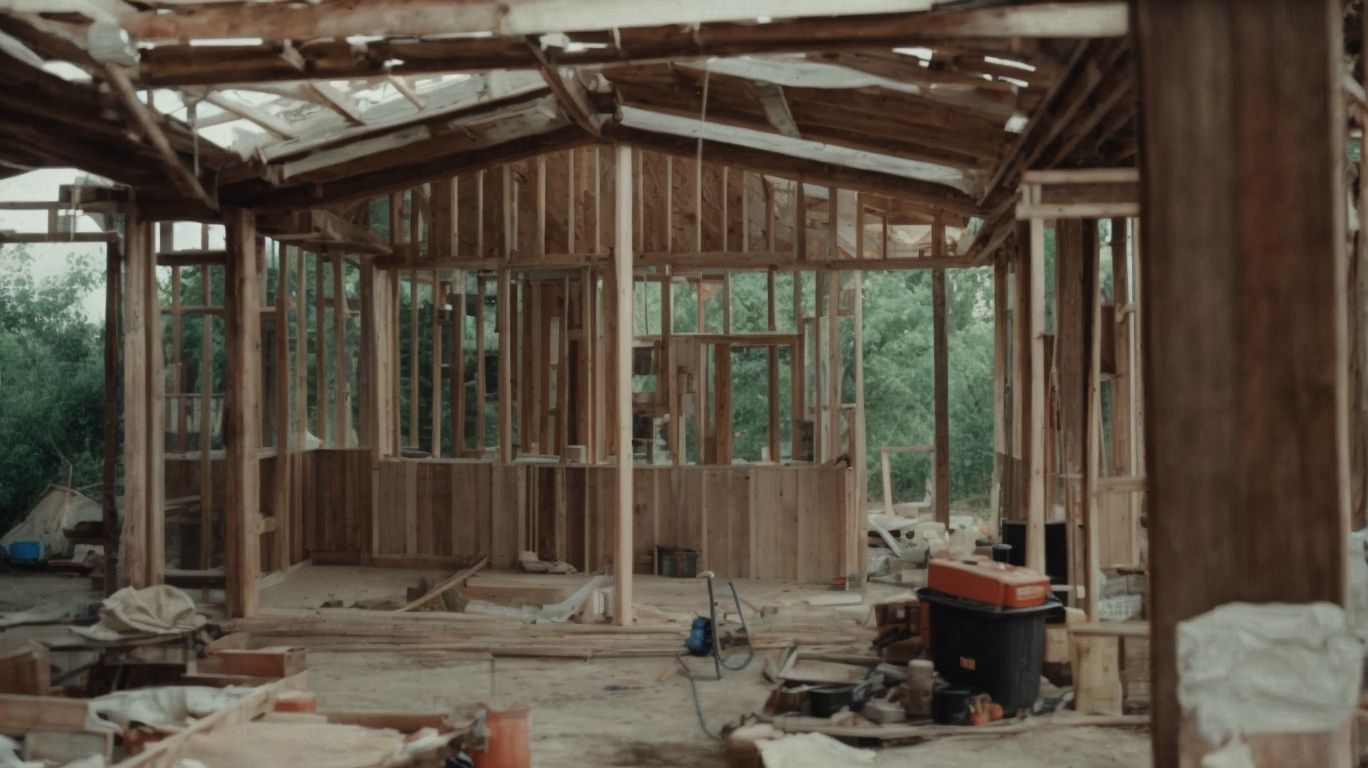
Cost-Benefit Analysis of Structural Engineering in SF Home Remodels
Structural engineering plays a crucial role in ensuring the safety, stability, and success of home remodel projects. From evaluating the structural integrity of existing buildings to designing new structural elements, the expertise of a structural engineer is invaluable.
In this article, we will delve into the importance of structural engineering in home remodels, exploring the benefits of hiring a structural engineer, the associated costs, and how these professionals determine the cost of home remodels. We will examine the potential savings that can be achieved by enlisting the services of a structural engineer. By understanding the cost-benefit analysis of structural engineering in San Francisco home remodels, homeowners can make informed decisions that lead to a safer, more efficient, and cost-effective remodeling process.
What Is Structural Engineering?
Structural engineering is a field of engineering dealing with the analysis and design of structures that support or resist loads, including buildings, bridges, or other infrastructure.
It plays a crucial role in ensuring the safety, durability, and functionality of construction and building projects. Structural engineers are tasked with assessing how various materials and components will withstand forces such as gravity, wind, and seismic activity. Considerations such as retrofitting, seismic upgrades, foundation design, and code compliance are integral parts of the structural engineering process. These factors are vital for the structural integrity and resilience of buildings, especially in areas prone to natural disasters or where specific building codes and regulations need to be adhered to.
Why Is Structural Engineering Important in Home Remodels?
Structural engineering plays a crucial role in home remodels, especially in San Francisco, as it ensures that the renovation and remodeling work adhere to structural integrity and safety standards.
This is particularly vital in a city like San Francisco, which is prone to seismic activity. Retrofitting existing structures and ensuring seismic upgrades are essential to protect homes and their occupants from potential structural damage during earthquakes. Compliance with local building codes is imperative to ensure that the renovated homes meet the prescribed safety regulations. The structural stability provided by engineering expertise enhances the overall durability and longevity of the remodeled homes, ensuring a safe and secure living environment for residents.
What Are the Benefits of Hiring a Structural Engineer for Home Remodels?
Hiring a structural engineer for home remodels offers various benefits, including cost-effectiveness, improved seismic resistance, and adherence to building codes and safety standards, resulting in a high return on investment (ROI) for homeowners.
These professionals can assess the structural integrity of your home, ensuring that any renovations or additions are safe and meet local building codes. By incorporating seismic upgrades and retrofitting, a structural engineer can help safeguard your property against potential natural disasters, adding significant value and peace of mind.
The expertise of a structural engineer also reduces the risk of costly repairs and ensures that the project is completed efficiently and with long-term durability. The investment in a structural engineer yields both immediate and long-term benefits for homeowners.
Ensures Safety and Stability
One of the primary benefits of hiring a structural engineer for home remodels is the assurance of safety and stability in the renovated structure, achieved through meticulous adherence to safety standards, structural stability assessments, and necessary seismic upgrades and retrofitting.
Their expertise allows for the evaluation of the existing structure, identifying potential vulnerabilities, and proposing effective solutions to reinforce the building’s resilience. By conducting thorough assessments and calculations, they ensure that the remodel complies with all relevant building codes and standards, providing homeowners with the peace of mind that their renovated home is not only aesthetically appealing but also structurally sound and resilient to natural forces.
Saves Time and Money
Engaging a structural engineer for home remodels can lead to significant time and cost savings by leveraging cost-effective solutions, efficient project management, and optimized use of construction materials and labor, resulting in a favorable cost-benefit analysis for homeowners.
They can provide valuable insight into the structural aspects of the project, ensuring that the changes made adhere to building codes and regulations. Their expertise enables them to anticipate potential issues and address them preemptively, avoiding costly delays and revisions. By collaborating closely with architects and contractors, the engineer can streamline the construction process, making it more efficient and avoiding unnecessary expenses.
Their recommendations for using appropriate materials can also contribute to long-term cost savings by ensuring durability and minimizing maintenance needs.
Provides Expertise and Knowledge
A structural engineer brings valuable expertise and knowledge to home remodels, particularly in addressing seismic upgrades, design considerations, project management, and the selection of construction materials, ensuring the successful execution of renovation projects.
Their deep understanding of structural elements allows them to assess and strengthen a home’s resilience to seismic activity, providing homeowners with peace of mind. These professionals play a crucial role in ensuring that the remodel adheres to building codes and standards, utilizing advanced design techniques to optimize space, functionality, and aesthetics.
With their guidance, homeowners can navigate the complexities of material selection, balancing durability, cost-efficiency, and sustainability for a truly transformational home upgrade.
Avoids Future Structural Issues
By engaging a structural engineer for home remodels, homeowners can avoid potential future structural issues through comprehensive risk assessment, implementation of seismic upgrades, retrofitting measures, and the assurance of long-term structural integrity, thereby safeguarding their long-term investment in the property.
These professionals possess the expertise to evaluate the existing structure, identifying potential weaknesses and recommending necessary measures to enhance its stability. Through their specialized knowledge, they can devise customized plans to reinforce the property, reducing the risk of damage due to natural disasters or aging.
Their insights also ensure compliance with building codes and standards. By undertaking these proactive steps, homeowners can enjoy peace of mind, knowing that their property is structurally sound for many years to come, minimizing the need for costly repairs or renovations in the future.
What Are the Costs of Hiring a Structural Engineer for Home Remodels?
Understanding the costs of hiring a structural engineer for home remodels is essential for homeowners to conduct a comprehensive cost-benefit analysis, encompassing aspects such as project budgeting, cost estimation, and labor costs to assess the potential return on investment (ROI).
This process involves carefully evaluating the expenses associated with consulting with a structural engineer, which may include initial consultation fees, structural assessment costs, and the engineer’s fees for designing and overseeing the remodel. Proper project budgeting to accommodate these expenses is crucial.
Cost estimation entails predicting potential unforeseen expenses throughout the project to avoid budget overruns. Labor costs associated with the structural modifications also play a significant role in the overall expenditure.
Initial Consultation Fee
The initial consultation fee for hiring a structural engineer is a crucial aspect that necessitates a comprehensive cost analysis and benefit assessment to evaluate the project feasibility, facilitating informed decision-making by homeowners.
This fee not only covers the engineer’s time and expertise but also provides invaluable insights into the structural integrity, potential risks, and necessary improvements for the property. By investing in this initial consultation, homeowners can gain a clear understanding of the scope of work required, potential budget considerations, and the overall impact on their property.
It’s an essential step in ensuring that the chosen structural engineer is well-equipped to deliver a solution that meets the specific needs and goals of the project, offering peace of mind and confidence in the long-term success of the undertaking.
Structural Analysis and Design Fee
The structural analysis and design fee associated with hiring a structural engineer involves a cost-benefit analysis considering the expertise provided, project planning considerations, and financial implications to assess the overall project investment for homeowners.
It’s essential to weigh the expertise offered by the structural engineer, which often includes extensive knowledge of materials, structural systems, and building codes. Project planning considerations encompass the engineer’s ability to create efficient and sustainable designs that meet the project’s objectives. From a financial perspective, the fee should be viewed as an investment in ensuring the structural integrity and safety of the building, potentially reducing long-term maintenance and repair costs.
Building Permit Fee
The building permit fee associated with hiring a structural engineer is intertwined with aspects such as compliance with zoning laws, project planning considerations, and adherence to construction practices and building standards, all essential for successful home remodels.
When obtaining a building permit, the expertise of a structural engineer ensures that the proposed structure complies with zoning laws, facilitating a smooth approval process. The engineer’s involvement contributes to meticulous project planning, taking into account potential challenges and solutions, streamlining the construction phase.
Their familiarity with building standards further guarantees a high-quality outcome, meeting the necessary safety and durability criteria for the remodeling project.
Construction Oversight Fee
The construction oversight fee associated with hiring a structural engineer involves considerations such as project management, adherence to building regulations, effective cost management, and property maintenance to ensure the successful execution of home remodels.
This oversight fee plays a crucial role in ensuring that the structural engineer effectively manages the different aspects of the project, such as coordinating with various professionals, maintaining compliance with building codes, and overseeing the budget to optimize cost efficiency. The fee encompasses the ongoing maintenance of the property, ensuring that the structural integrity and safety standards are sustained over time.
Such considerations reflect the comprehensive role of the structural engineer in overseeing all facets of the construction process, from design to maintenance.
How Do Structural Engineers Determine the Cost of Home Remodels?
Understanding how structural engineers determine the cost of home remodels involves aspects such as cost-benefit analysis, project budgeting considerations, risk assessment, financial planning, and the evaluation of construction costs to ensure economic viability and cost-effectiveness.
This intricate process requires a comprehensive understanding of the specific needs and goals of the remodel, allowing engineers to analyze the potential financial gains against the investment. It also involves careful budgeting to allocate resources efficiently, assessing potential risks that may impact the project timeline or expenses, and strategic financial planning to optimize the use of available funds.
Evaluating construction costs involves detailed assessments of materials, labor, and other related expenses to achieve an accurate estimation of the remodel’s overall expenses.
Complexity of the Project
The complexity of the project is a key factor considered by structural engineers when determining the cost of home remodels, influencing project feasibility, decision-making, construction planning, building design, and risk management to ensure successful outcomes.
Understanding the intricacies of a project allows engineers to make informed decisions regarding resource allocation and material selection, thereby affecting the overall cost estimation. When dealing with complex projects, engineers need to devise innovative solutions to the unique challenges that arise during construction, requiring careful planning and a keen eye for detail to ensure that the structural integrity of the building is maintained.
Risk management becomes pivotal, as the potential impact of unforeseen complexities must be accounted for in the cost determination process.
Size of the Project
The size of the project significantly influences the cost determination process by structural engineers, impacting the scale of construction techniques, considerations for home renovation, building safety measures, and the overall project evaluation.
For larger-scale projects, structural engineers may need to employ more advanced construction techniques and materials to ensure the durability and safety of the building. The cost determination process may involve a thorough assessment of the resources required for the renovation or construction, taking into account potential challenges and safety measures.
Evaluating the project’s size also plays a crucial role in determining the manpower needed and the duration of the overall construction, all of which contribute to the cost estimation process.
Location of the Project
The geographical location of the project is a crucial consideration for structural engineers in determining the cost of home remodels, encompassing aspects such as adherence to zoning laws, selection of construction materials, environmental impact assessment, and material suitability for the location.
It becomes imperative for structural engineers to carefully evaluate the geographical aspects of the project, as factors like local building codes, seismic activity, soil conditions, and climate play a pivotal role in cost determination. The choice of construction materials needs to align with the regional climate and environmental conditions, ensuring durability and sustainability.
Conducting a thorough assessment of the environmental impact helps in making informed decisions about utilizing eco-friendly materials and minimizing the project’s carbon footprint, all of which directly influence the overall project cost.
Materials and Labor Costs
The assessment of materials and labor costs forms a fundamental part of the cost determination process by structural engineers, involving considerations for sustainable design, material selection, and comprehensive cost analysis to ensure economic viability and cost-effectiveness.
This process requires a detailed evaluation of various materials and their environmental impact, as structural engineers strive to prioritize sustainable options. Labor costs are carefully assessed to determine the most efficient use of resources.
Material selection considerations encompass factors such as durability, recyclability, and energy efficiency to ensure that the final design aligns with sustainability goals. Comprehensive cost analysis integrates these factors to deliver a solution that is not only economically viable but also environmentally responsible.
What Are the Potential Savings of Hiring a Structural Engineer for Home Remodels?
The potential savings of hiring a structural engineer for home remodels extend to cost-benefit analysis, improved home improvement prospects, enhanced seismic resistance through retrofitting, increased resale value, and protection of insurance premiums for homeowners.
By engaging a structural engineer, homeowners can accurately assess the costs and benefits associated with potential structural upgrades, ensuring that their investment is both financially viable and structurally sound. The expertise of a structural engineer can also lead to enhanced home improvement prospects, as they can provide valuable insights into maximizing space and enhancing the overall structural integrity of the property.
Seismic upgrades and retrofitting guided by a professional can significantly increase a home’s resistance to earthquakes and other natural disasters, ultimately safeguarding both the property and its occupants. These improvements can lead to a notable uptick in the home’s resale value, making it a sound investment for the future. Structural engineer-approved upgrades may also provide protection against increased insurance premiums by mitigating potential risks and liabilities.
The decision to hire a structural engineer for home remodels can yield substantial long-term savings and peace of mind for homeowners.
Avoids Costly Repairs and Re-dos
By engaging a structural engineer, homeowners can avoid costly repairs and re-dos through comprehensive risk assessment, implementation of seismic upgrades, strategic retrofitting, and adherence to structural modifications and building codes compliance, ensuring long-term cost savings.
These professionals possess a deep understanding of the structural integrity of buildings, allowing them to identify potential weaknesses and propose solutions to fortify the structure. Their expertise helps in determining the appropriate seismic upgrades, ensuring buildings can withstand potential disasters.
Their focus on retrofitting and modifications ensures that the building stays in line with evolving safety standards and regulations. By staying ahead of potential issues through their expertise, homeowners can save significant costs and ensure the longevity of their property.
Increases Resale Value of the Home
Engaging a structural engineer can result in an increased resale value of the home, positively impacting property value, insurance premiums, property appraisal, and overall return on investment for homeowners undertaking home remodels.
When a structural engineer assesses and certifies the integrity of the property, it can lead to a higher property valuation and attract potential buyers looking for a structurally sound investment. Insurance companies may offer lower premiums for homes that have been professionally inspected and deemed structurally sound, reducing the long-term costs for homeowners.
During the property appraisal process, the certification from a structural engineer can provide peace of mind to appraisers, potentially leading to a higher appraisal value. Consequently, investing in a structural engineer’s expertise yields a substantial return on investment, enhancing the overall desirability and value of the property.”
Protects Homeowner’s Insurance Coverage
Hiring a structural engineer safeguards homeowners’ insurance coverage by ensuring comprehensive property maintenance, effective risk management, strategic building upgrades, and well-planned property renovation, reducing insurance-related risks and costs for homeowners.
Their expertise in assessing and strengthening the structural integrity of a property helps to minimize the likelihood of insurance claims related to structural issues. This proactive approach can lead to reduced insurance premiums, as it demonstrates a commitment to maintaining a safe and secure property. Their input can also enhance the overall risk management strategy for homeowners, reducing the potential for costly claims and liability issues.
When homeowners invest in building upgrades and property renovations under the guidance of a structural engineer, they are more likely to meet the necessary safety and code compliance requirements, which can positively impact their insurance coverage.




No Comments